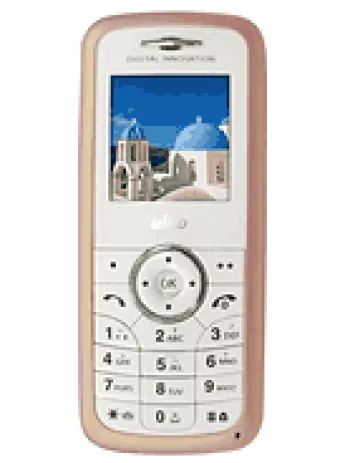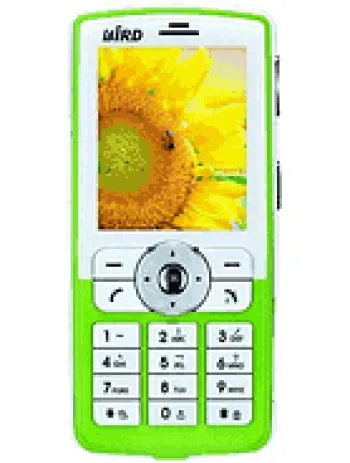
Introduction to Bird G118
The Bird G118 is a feature phone that was announced in the fourth quarter of 2004 and has since been discontinued. As a product of its time, the Bird G118 was designed to cater to basic mobile communication needs, focusing more on function than form. This article takes a comprehensive look at the Bird G118, covering its technical specifications, design aspects, and its impact during its release period. Although not a smartphone by today’s standards, the Bird G118 represents a piece of mobile phone history that showcases how far we've come in terms of technology.
Technical Specifications
Network Capabilities
The Bird G118 operates on GSM technology, predominantly 2G bands consisting of GSM 900/1800. It's equipped with GPRS class 4, allowing for minimal data transfer capabilities primarily used for WAP browsing. Its lack of EDGE support, however, limited its efficiency for faster data communication, which was a significant constraint for users who required more robust internet capabilities.
Design and Build
The device’s dimensions, 82 x 43 x 22 mm, and a weight of only 80 g make the Bird G118 a compact and lightweight phone. Its small form factor and reliable build appeal to individuals who prefer a simple, straightforward phone without the complexities of modern smartphones. The use of Mini-SIM is consistent with the standards present when it was released.
Display
The Bird G118 features a CSTN display supporting 65K colors with a resolution of 128 x 160 pixels. The lack of size specification indicates that the focus was not on providing a large screen experience, common in feature phones of that era. The color display, however, was a step up from its monochrome predecessors, appealing to users who preferred a more visually engaging interface.
Memory and Storage
The device does not support external storage media, which means users cannot expand its storage capabilities. The phonebook can store up to 100 entries, and it keeps a log of 20 dialed, 20 received, and 20 missed calls. This limitation highlights the focus on essential communication functions rather than data storage or multimedia features.
Camera and Sound
One significant omission in the Bird G118 is the camera, which is not present. The focus was squarely on communication, with limited multimedia capabilities. Additionally, the device does not feature a loudspeaker or a 3.5mm jack, limiting audio functionality to downloadable polyphonic ringtones and vibration alerts.
Communications Features
In terms of communications, the Bird G118 lacks modern connectivity features such as WLAN, Bluetooth, or GPS. It also does not include an FM radio. The absence of these features reinforces its role as a basic mobile device rather than a multimedia gadget. Users could access the internet through a basic WAP 1.2.1 browser, supporting basic web capabilities, however, limited by the device's network capabilities.
Battery
The device is powered by a removable Li-Ion 920mAh battery, suitable for the low power requirements of a feature phone. This ensures a longer battery life, which was a strong selling point at the time, especially for users needing a reliable communication device on the go.
Additional Features
Features include standard SMS, EMS, and MMS messaging options, along with the ability to download and play basic games, albeit without Java support. The Bird G118 was offered in a vivid red color, aimed at capturing the interest of consumers looking for an aesthetic appeal.
Impact and Legacy
The Bird G118 was part of a broader spectrum of feature phones that laid the groundwork for future developments in mobile technology. Its simplicity and focus on communication functions made it accessible to a wide range of users. While it lacks the sophisticated features of modern smartphones, its design and functional ethos are reflective of an era where communication was prioritized over connectivity.
Conclusion
The Bird G118 captures a distinct period in mobile phone history. While it may seem primitive compared to today’s technology, it served its purpose well, providing reliable communication tools without distraction. Feature phones like the Bird G118 remind us of the innovations that have paved the way for the sophisticated mobile devices we use today. They tell a story of technological evolution that is essential to the mobile phone's narrative.
Main Features of Bird G118
- Compact and lightweight design (82 x 43 x 22 mm, 80 g).
- Supports GSM 900/1800 network bands.
- Colorful CSTN display with 65K colors.
- Messaging options: SMS, EMS, and MMS.
- Includes downloadable polyphonic ringtones.
- Removable Li-Ion battery for easier replacement.
- Available in a vibrant red color.
Disadvantages of Bird G118
- Only supports GSM technology, with no 3G or 4G capabilities.
- No EDGE support, limiting data transfer speeds.
- The device is discontinued, making it difficult to find new units or support.
- Display size is unspecified; using a small CSTN screen with only 65K colors.
- No card slot for memory expansion, limited to 100 phonebook entries.
- No camera functionality available.
- Lacks a loudspeaker, reducing sound output options.
- No 3.5mm audio jack for headphone connectivity.
- Absent WLAN, Bluetooth, GPS, and Radio capabilities.
- Uses a basic WAP 1.2.1 browser with no Java support.
- Lacks any sensors or advanced features commonly found in modern phones.

View Also
More Phones
All Rights Reserved +14267 Phones © Mobilawy 2025

























